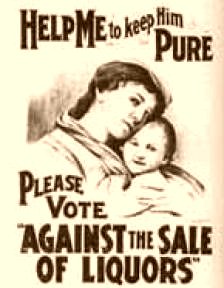Last week, the Senate took four votes on four separate budget resolutions: the House-passed Ryan budget (failed, 40-57); the Toomey GOP alternative (failed, 42-55); the Rand Paul alternative (failed, 7-90); and the president’s budget proposal (failed, 0-97). What do we make of this? Continue reading
Monthly Archives: May 2011
On capitalism and the ethics of the endtimes
If the world is going to end on Saturday as some folks are predicting, we’ve got a few things to discuss. Most importantly, rapture insurance is evidently being price gouged. Whoa.
Let’s unpack this from a libertarian perspective, one step at a time. Continue reading
On the history of political phrases
“Waste, fraud, and abuse.”
You won’t find a policy more despised in capital cities than this. The Obama White House hates it. Congressional committees hate it. State governors hate it. Watchdog groups hate it. Executive orders try to stop it. Bills in Congress try to prevent it. President Clinton battled it. Ronald Regan addressed the nation on it. Bloggers all roll their eyes when they hear about it.
Everyone hates waste, fraud, and abuse. But when, exactly, did we start talking about it? Continue reading
Harvard in the 315
Imagine a highly-selective liberal arts college. Say it’s in the Top 25 in the U.S. News and World Report Rankings for Liberal Arts Colleges, but not in the Top 10. Like Hamilton. Or Colgate. Or Washington and Lee. The kinds of schools that have a few thousand students, endowments in the $500 million range, solid campus facilities, and first-rate liberal arts faculties. Good enough to be top-flight liberal arts colleges, but also clearly not as well-regarded as the top liberal arts colleges (Williams, Amherst, etc.), or even close to the reputation and resources of the top undergraduate universities (Yale, Harvard, Princeton, etc.).
Now imagine a single alum was going to give this liberal arts college $5 billion, no strings attached.
Three questions:
1) What would be the most effective use of the money, if the goal is to improve the school (“improve” being used in the traditional sense — some combination of getting better students to choose the school, increasing the economic value of a degree from the school after graduation, and some amorphous academic quality, like making better people and/or improving the world)? That is, if you were going to devise a master plan for its long-term expenditure, what would the broad outline look like? Or, to put it another way, if you were the alum making the donation and wanted to put some general guidelines/restrictions on its use, what would you say?
2) Could that kind of money, properly maximized in its use, easily take a #18 ranked liberal arts college and catapult it to #1? How long would it take?
3) If the answer to question #2 is yes, would it also be possible to make said liberal arts college nationally competitive wit the elite universities? In effect, could you buy your way to being Princeton for $5 billion?
On the 18th Amendment and the Volstead Act
 Currently reading Last Call: The Rise and Fall of Prohibition.
Currently reading Last Call: The Rise and Fall of Prohibition.
The consequences of Prohibition are more or less common knowledge: enforcement was either difficult or impossible, and at any rate expensive; continued demand for alcohol gave rise to massive criminal syndicates; unregulated booze was a greater health hazard; and the flouting of the law bled into a general disrespect for all law. And so on and so on. In retrospect, the whole ordeal seemed predestined to fail. And we don’t need a new history of the policy to tell us that.
What I did not realize about Prohibition is that, once you read the fact pattern of what happened in 1919, the whole business seems obviously destined to fail even in the moment of its greatest triumph. And ground zero for that failure is the relationship between the 18th amendment and the Volstead Act. Continue reading
On watching battles unfold
Most of the media coverage of OBL’s demise has been, frankly, pretty boring. But I thought this picture was amazing: Continue reading
